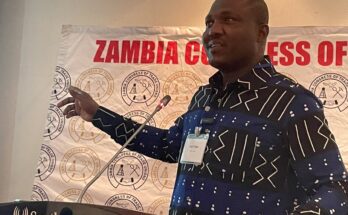In a no-hold bared interview with SALIHU OYIBO, Comrade Idris Miliki Abdul, the executive director Conscience for Human Rights and Conflict Resolution based in Lokoja said contrary to claims by the state government that it conducted the best council elections last year, no election was held in the state, among other issues.
What is your assesement of the November 2020 local government election in Kogi state?
For the past four and a half years when the tenure of the local government council expired in 2016, we have been making agitations that by the provision of the law, local government shall be democratically elected and as such caretaker or any nomencleture used to establish government at that level is not known to law.Finally, by March last year, the Kogi State Independent Electoral Commission (SIEC) was constituted and to us it was a good effort. But to our surprise the quality of the election does not meet the national standard not to talk of international standard. There was no pre-election activities and no training of adhoc staff. Many of the political parties did not conduct credible primaries to elect their candidates. On December 12 2019, elections were said to have been conducted; we went round the whole Lokoja, there was no materials for electorates to cast their votes for the candidates of their choice. Similar reports came from other local government areas, but the following day, SIEC began to announce winners of the election without declaring publicly the election results. It came to us as a rude shock that a government that cannot conduct election in more than four years would come out to conduct such a shameful exercise that has no electoral value. As far as we are concerned, there was no council election in Kogi state.
The current assembly has been described as the weakest legislature in the history of the state. What is your take on this?
The assembly members were elected to make laws, make appropriation, perform oversight functions and make their activities known to the public to make input because it is not all the members of the assembly that have legal knowledge. So by virtue of the law, they are supposed to engage in public hearing especially on budget, but taking a look at the current assembly, I can describe them as the worst in the history of the state. In the last one year, how many oversight functions have they performed? The assembly by law is supposed to continually supervising the activities of the local government. Do they do that in Kogi state? Under the current speaker, Hon Matthew Kolawole oversight functions to local government is completely zero and instead of them to sit so that they can perform their statutory functions, they adjourn serially for a long period of time thereby weakening the assembly.For instance, they adjoined in December last year and resumed on 2nd March and now they will have break during Easter and during Ramadan fasting. They were also entitle to annual leave by the month of June which cannot be less than two months. So from January to June 4 when they would be two years in office, the numbers of sitting would be below expectation thereby setting the state backward.The current assembly has never passed any private bill as all the bills passed so far are executive bills so the level of public participation on public hearing is also very poor. The assembly does not have a functioning website which is not healthy for the house. Since the assumption of this present assembly, there is no single item added to the premises. During Clarence Olafemi as speaker, he added value. During the tenure of Imam, there was massive renovation, but in the last three years, the regime of Kolawole added nothing to the assembly. The road linking the town to the assembly is in a sorry state, but they are not bothered. In my opinion, the current assembly has nothing to offer the state.
What is the way out?
The leadership should ask themselves why they are there and what is the constitutional provision of the assembly. They should go back and ensure that the job they were elected to do are done diligently in the interest of the masses that gave them the mandate. Oversight functions are not optional, but compulsory to enable them make report.
In your own opinion, can the 2021 budget transform Kogi as claimed by the state government?
If you look at the appropriation in details, the way it is being implemented is frustrating. Right now, there are a lot of things the executive is doing that are not in the budget. First and foremost we don’t even know the debt profile of the state and this is what determines how much income the state has and what the money is being spent for. This current government so far has collected over 400 billion naira from the federation account and other sources, yet the same government after five good years cannot commission a single three bed room flat. It is high time people began to ask the state governor why he does not have projects to commission like his counterpart in other states. Misappropriation of resources and misplacement of priority has been the order of the day in Kogi and as such the 2021 budget can never transform the state.
How would you assess Governor Bello’s administration in the last five years?
Governor Bello in the last five years has not done any thing tangible worth praising aside security. At the beginning of his administration, he brought out a new direction agenda slogan that is only known to his cabinet members and not the citizens of the state. Again, taking a look at the state in the last five years, you would agree with me that Kogi is practically facing poor infrastructure development both at the state and local government levels. There is no doubt, he performed better in the area of security. and kudos should be giving to him as he was able to put in place a formidable security strategy that has helped the state. In terms of kidnapping, robbery along the major roads in the three senatorial district, he dealt with that holistically and we have seen and felt the result of his investment in that direction, but about infrastructural development under the present administration when compared to the kind of money that came to the state, it is abysmal and very disappointing. It is a pity that we have a governor who has spent five years but could not commission one block of three bed room flat. No road has been commissioned in the last five years. We have five estates in Lokoja built by previous administrations. We have Otokiti Estate, 200 and 500 Estate units, Commissioners Quarters, two House of Assembly quarters, Aniebo’s Quarters, Flood Estate all built by former governors to provide shelters for the people. In my opinion, Governor Bello failed woefully in the area of infrastructure development. Kogi state is the hub of tourism, but the two hotels belonging to the state government inherited by Governor Bello today still remain in sorry states. Kogi Hotels, if completed and put to use, can conveniently host 10 governors at once, but the present administration did not focus on that even when the hotel can generate enormous revenue and employment for the state.
The modern motor park established by Captain Idris Wada is a money spinning venture; again Governor Bello inherited it and allowed it to lie fallow. In the area of health, what the government has been budgeting for the sector in the last five years is far from enough as hospitals are not equipped and many doctors left the services of the state as a result of poor condition of service during the first tenure of this administration. The education sector is worst as a result of poor funding. Imagine that in public schools, parents have to provide chairs and lockers for their children, which means the government can no longer provide seats for the pupil in primary and students in secondary schools. Anti-labour policy also drove tertiary institution lecturers from the state. Go to Kogi State University in Anyigba some departments dod not have a single professor. Generally, what is currently happening in Kogi in terms of infrastructural development can best be described as one step forward, three steps backward.




